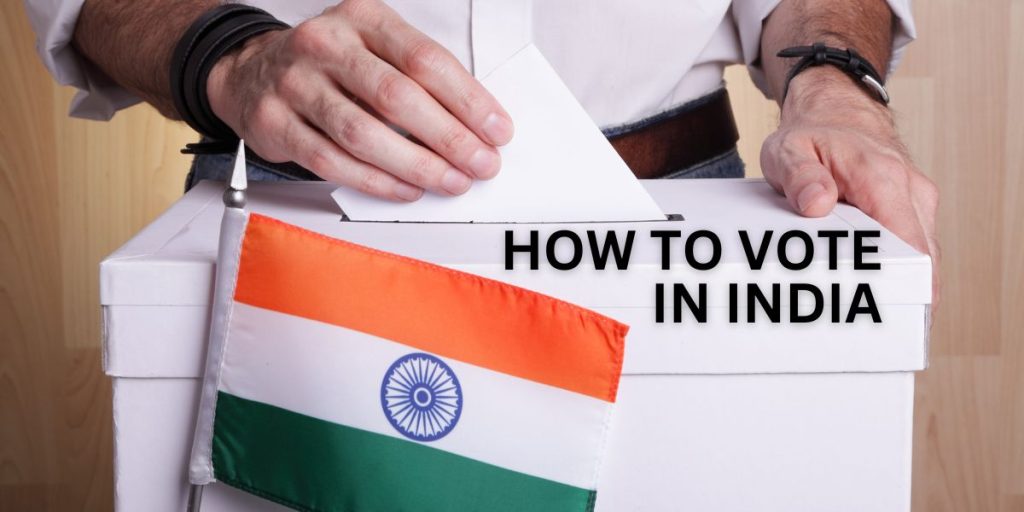How to vote in India
Voting is an essential part of democracy and a fundamental way for citizens to have their voices heard. In India, voting is mandated by the Government of India’s Representation of the People Act, 1951. Stay informed and up-to-date with guidelines about how to vote in India so that you can make sure your voice counts during elections!
This blog post will provide background information on the workflow system in place in order to successfully cast your vote in Indian elections. From understanding voter ID laws, registration process, voter list requirements, eligibility criteria, and more – understand all rules and regulations applicable when casting your ballot in upcoming national polls.
Overview of the Voting System in India
India’s voting system is one of the largest and most complex in the world. With over 900 million eligible voters, it is also the world’s largest democracy. The system involves electronic voting machines (EVMs) that are used for casting and counting votes. During the election, the EVMs are transported to polling stations across the country, where voters insert a ballot after verifying their identity.
The EVMs then record their votes electronically, making the process faster and more accurate. The Indian constitution and election laws ensure free and fair elections, with equal opportunities for all citizens to participate. Despite some criticism and challenges, the Indian voting system is considered a significant achievement and a democratic milestone in the world.
Eligibility Requirements for Voting
In the United States, eligibility requirements for voting are determined by each individual state. Generally, voters must be at least 18 years old, a U.S. citizen, and a resident of the state in which they wish to vote. Certain states also require proof of identification before allowing a person to cast their vote.
Additionally, those who have been convicted of a felony may or may not be eligible to vote depending on the state and their specific criminal record. It is important for citizens to research their state’s specific requirements in order to ensure that they are able to participate in the democratic process. Voting is a fundamental right and responsibility as a citizen of the United States, and understanding the eligibility requirements is a crucial step in exercising that right.
How to Register as a Voter
Registering to vote is a simple but important process that ensures that you have a say in who leads your country. To register, first, make sure you are eligible to vote- you must be a citizen and at least 18 years old. Next, you should find out what the voter registration requirements are in your state. Some states require online registration, while others require filling out a physical form. You may also need to provide identification, such as a driver’s license or social security number. Once you’ve registered, don’t forget to vote during elections! Your vote matters and can make a difference in shaping the future of your community and country.
How to Vote by Post or Absentee Ballot
If you won’t be able to make it to the polling station on Election Day, it’s important to know that there’s still a way for you to have your voice heard: by voting by post or absentee ballot. This option allows individuals to cast their vote even if they’re out of town, have a disability, or are simply unable to make it to the polling station for whatever reason.
Voting by post or absentee ballot involves requesting a ballot, filling it out, and returning it to the appropriate election office before the designated deadline. It’s a simple process that can make all the difference in ensuring your vote is counted. So don’t let a busy schedule or unforeseen circumstances keep you from exercising your right to vote – take advantage of the convenience of voting by post or absentee ballot.
Where and When to Vote on Election Day
Election Day is the opportunity for Americans to have their voices heard and their opinions counted. It’s a day when we can exercise our right to vote and participate in the democratic process. If you’re unsure where to vote, your polling location can usually be found online or by calling your local Board of Elections. You may also find signs posted in public locations around your community, indicating where the polling location is.
It’s important to remember that polling locations can vary based on where you live and various election cycles, so it’s always a good idea to make sure you have the correct information beforehand. Voting on Election Day typically occurs between the hours of 6 AM – 8 PM, but times may vary depending on your location and state laws. By taking part in this civic duty, you are making your voice heard and contributing to the democratic process of our great nation.
What Documents are Needed at the Polling Station
As election day approaches, it’s important to be prepared and know what documents you need to bring to the polling station. Most states require a valid form of identification, which can be a driver’s license, a state-issued ID, or a passport. However, some other forms of identification may also be accepted, such as military IDs or student IDs. It’s important to check with your local election official to ensure you have the proper identification.
Additionally, you may need to bring proof of residency, such as a utility bill or lease agreement, depending on your state’s laws. Being prepared with the proper documents not only ensures a smoother voting process, but it also ensures that your vote counts. So, make sure to double-check what documents are required beforehand to avoid any issues at the polling station.
Voting is one of the most essential elements of democracy as it allows us to have a say in the running of our government and be part of the decision-making process. In India, this system is open to any citizen who fulfills all eligibility requirements and knows how to register as a voter, submit their ballot by mail or vote in person on Election Day.
Knowing these ins and outs could give every individual an opportunity to participate in this important civic process and contribute towards creating a better future for our country. And while various rules are put into place to ensure that the outcome of the election is fair, giving each voter confidence that their right to make a choice will not be undermined. It’s clear to see why voting is so critical for democracy, and why we must strive to make sure every eligible person can do so without any difficulty.







